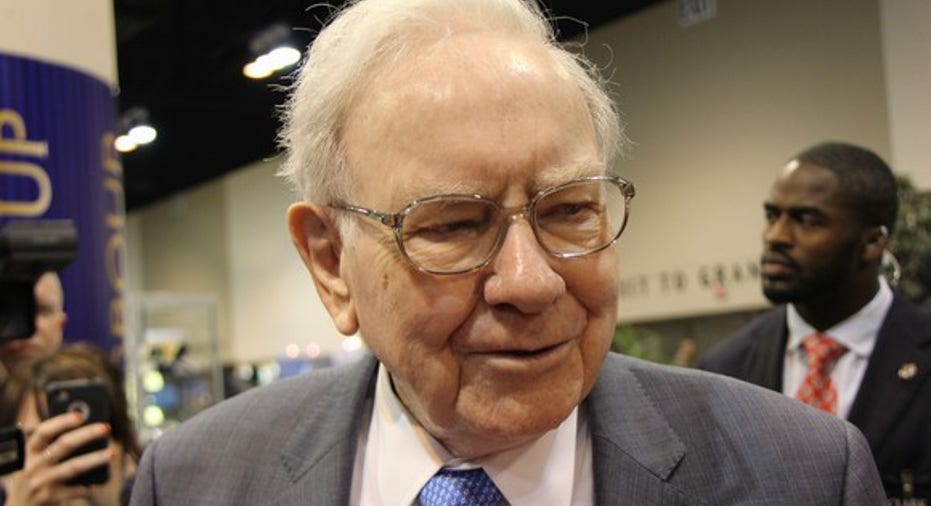How Much Has Warren Buffett Beaten the Market By?

I won't keep you in suspense -- since Warren Buffett took the reins of Berkshire Hathaway (NYSE: BRK-A) (NYSE: BRK-B) about 52 years ago, Berkshire's stock has delivered 155 times the total return of the S&P 500, even when including dividends generated by the stocks in the S&P. Here are some more details about Berkshire's performance, how Buffett managed to deliver such strong results, and what investors should expect going forward.
Berkshire Hathaway's performance since 1965
Berkshire Hathaway's performance history is perhaps the best real-world example of the power of compound returns that I have ever come across.
Image source: The Motley Fool.
Since 1965, the S&P 500 has delivered annualized returns averaging 9.7%, including dividends. During the same time period, Berkshire Hathaway has generated an average stock price gain of 20.8% per year, or slightly more than double that of the S&P 500. In other words, if you had invested $10,000 in an S&P 500 index fund at any point during the last 50 years, the investment would have grown to $10,970, on average, after one year. The same investment in Berkshire would have grown to $12,080.
Don't get me wrong -- this is an impressive difference. However, an additional $1,000 in gains over the average year isn't the real story here.
Here's where the incredible effects of compounding come into play. Over the past 52 full calendar years, a $10,000 investment in a low-cost S&P 500 index fund would have grown to about $1.28 million. Pretty impressive, until you consider that a $10,000 investment in Berkshire Hathaway would have grown to more than $197 million over the same time period -- about 155 times as much as the S&P investment.
That's the power of sustained outperformance, and is the primary reason Warren Buffett is one of the world's richest people today.
How has Warren Buffett done so well?
Perhaps the most amazing part of the story is that Buffett and his team haven't used any ultra-complicated investing strategies to produce these results. In fact, this amazing track record of performance can be attributed to just a few basic concepts that make up Berkshire's growth strategy.
- Continuously improving the earnings power of its subsidiaries, year after year. Berkshire has been highly successful at this, as the company's per-share book value has only declined twice in 52 years.
- Further increasing earnings through bolt-on acquisitions.
- Benefitting from the growth of the company's investments.
- Buying back shares when they trade at a meaningful discount to book value.
- Occasionally making large acquisitions.
The next 50 years at Berkshire won't come close to the first 50
Now, I'm not being pessimistic by making this statement. In fact, Berkshire Hathaway is one of my largest stock holdings, and I don't anticipate that fact changing anytime soon. Rather, this is what Warren Buffett himself said in his 2014 annual letter to shareholders, which included a section where Buffett reflected on Berkshire Hathaway's past, present, and future.
Basically, Buffett's point is that Berkshire is simply getting too large to sustain its amazing record of performance for a long period of time. In fact, if Berkshire's stock price grew at the same 20.8% rate for another 50 years, it would result in a market cap of approximately $7,400 trillion. Simply put, it's not going to happen. That's about 30 times the combined wealth of all the people in the entire world.
However, by using the same winning strategy he's been using for more than half a century, Buffett believes that Berkshire can still beat the market by a significant margin over the long run, and as I've written before, I agree. It just won't be anywhere near as impressive of a run as Berkshire has had so far.
10 stocks we like better than Berkshire HathawayWhen investing geniuses David and Tom Gardner have a stock tip, it can pay to listen. After all, the newsletter they have run for over a decade, Motley Fool Stock Advisor, has tripled the market.*
David and Tom just revealed what they believe are the 10 best stocks for investors to buy right now... and Berkshire Hathaway wasn't one of them! That's right -- they think these 10 stocks are even better buys.
Click here to learn about these picks!
*Stock Advisor returns as of February 6, 2017
Matthew Frankel owns shares of Berkshire Hathaway (B shares). The Motley Fool owns shares of and recommends Berkshire Hathaway (B shares). The Motley Fool has a disclosure policy.



















